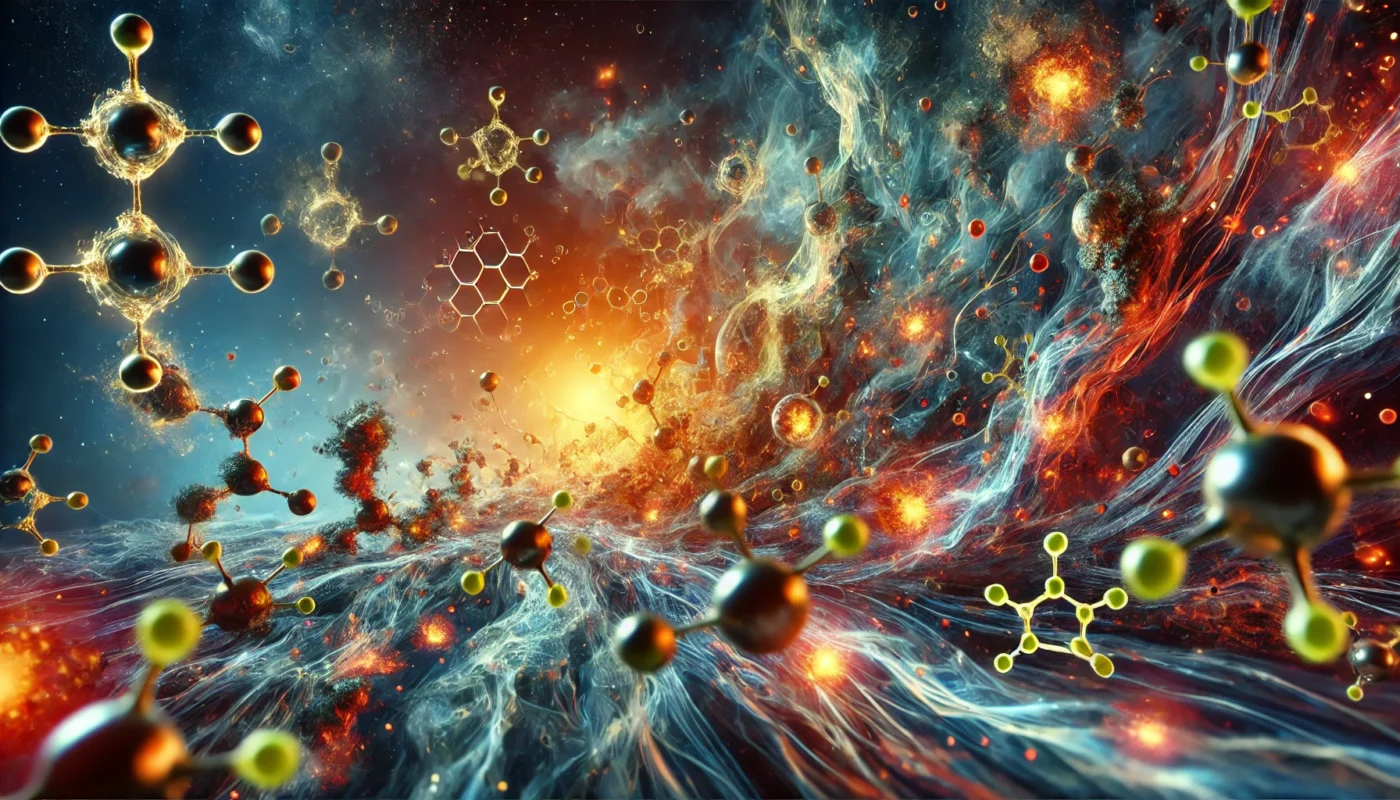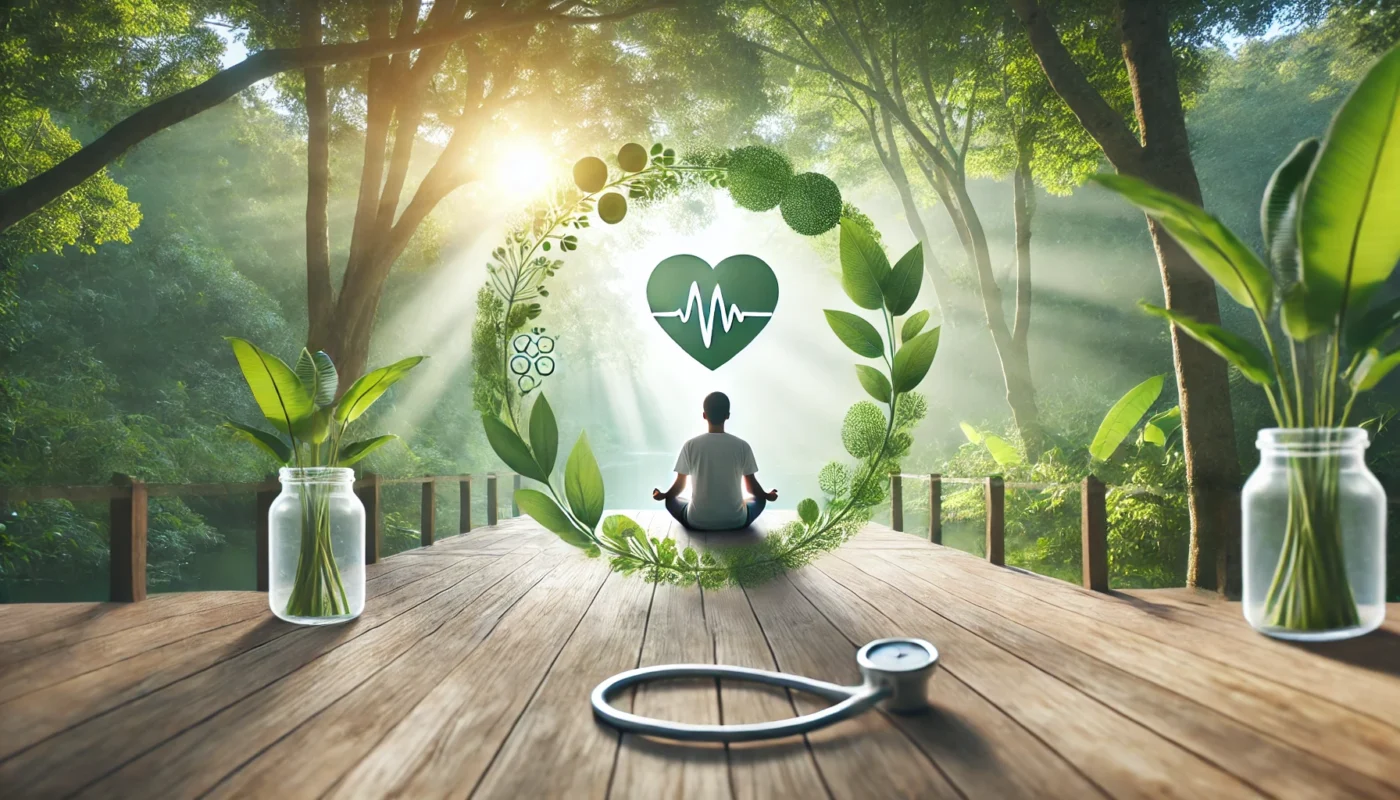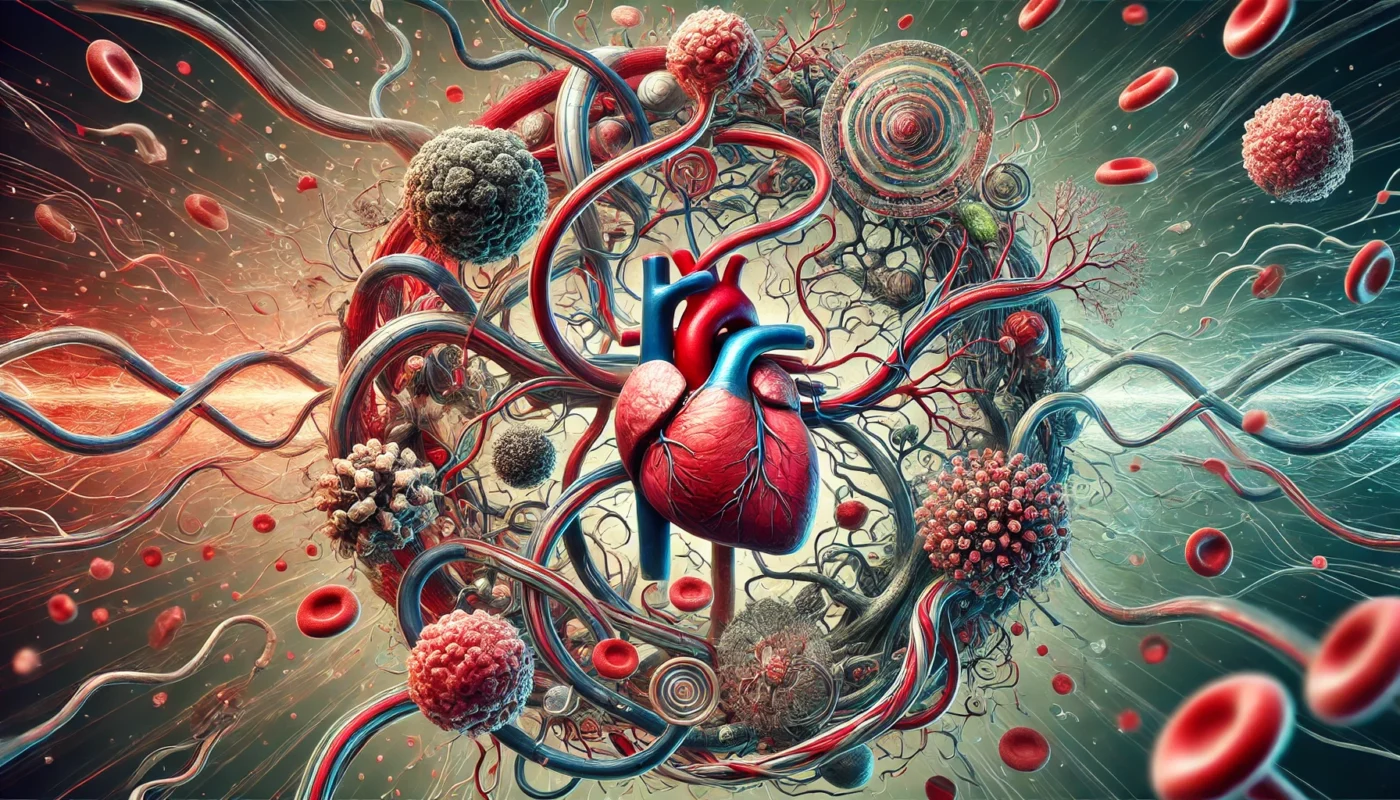Hypertension, or high blood pressure, is a global health epidemic, affecting nearly 1.28 billion adults worldwide according to the World Health Organization (WHO). It is a leading cause of cardiovascular disease, stroke, and kidney failure, yet its connections to other health issues, particularly cancer, are often overlooked. Emerging research highlights a potential link between hypertension and an increased risk of cancer, prompting questions about shared mechanisms and causative factors. This article delves into the overlapping pathways between hypertension and cancer, the evidence supporting their connection, and what this means for prevention and treatment strategies.
You May Also Like: The Link Between Hypertension and Cognitive Decline: Can New Treatments Help?
Understanding Hypertension and Cancer
What Is Hypertension?
Hypertension is defined as persistently elevated blood pressure, typically exceeding 130/80 mmHg. It places undue stress on blood vessels, leading to complications such as atherosclerosis and organ damage. Contributing factors include:
- Lifestyle Choices: Poor diet, lack of exercise, and smoking.
- Genetics: Family history of hypertension increases risk.
- Chronic Inflammation: Plays a central role in vascular damage.
What Is Cancer?
Cancer refers to the uncontrolled growth and spread of abnormal cells. While it can occur in virtually any organ or tissue, its progression is influenced by genetic mutations, environmental factors, and chronic inflammation.

The Overlapping Mechanisms of Hypertension and Cancer
Recent research suggests that hypertension and cancer may share biological pathways that facilitate their development. Here are some of the primary mechanisms:
1. Chronic Inflammation
Chronic low-grade inflammation is a hallmark of both hypertension and cancer. Hypertension contributes to endothelial damage, triggering an inflammatory response that promotes cell proliferation and angiogenesis, processes also critical in tumor growth.
- Evidence: A study in Hypertension Research (2020) identified elevated levels of inflammatory markers such as C-reactive protein (CRP) and interleukin-6 (IL-6) in patients with both hypertension and cancer.
2. Oxidative Stress
Oxidative stress occurs when the production of reactive oxygen species (ROS) outpaces the body’s ability to neutralize them. In hypertension, ROS damage blood vessels, while in cancer, they contribute to DNA mutations and tumor progression.
- Shared Pathway: Prolonged oxidative stress can exacerbate both conditions, creating a vicious cycle of vascular damage and cellular mutation.
3. Dysregulated Angiogenesis
Angiogenesis, the formation of new blood vessels, is vital for both wound healing and cancer growth. Hypertension disrupts normal angiogenesis through imbalanced signaling of vascular endothelial growth factor (VEGF), a protein also heavily involved in tumor vascularization.
- Implication: Excessive VEGF activity in hypertension may inadvertently create an environment conducive to cancer cell proliferation.
4. Renin-Angiotensin-Aldosterone System (RAAS) Dysregulation
RAAS, a hormone system critical for blood pressure regulation, is often overactive in hypertensive patients. This overactivity can lead to increased cellular proliferation, inflammation, and angiogenesis, all of which are implicated in cancer development.
- Evidence: Research in Cancer Research and Therapy (2019) found that angiotensin II, a key RAAS component, promoted tumor growth in experimental models.
Hypertension, Antihypertensive Medications, and Cancer Risk
The relationship between hypertension and cancer is further complicated by the potential effects of antihypertensive medications. While these drugs are essential for managing blood pressure, some studies have explored their role in either increasing or decreasing cancer risk.
1. Calcium Channel Blockers
- Potential Risk: Early studies suggested a link between long-term calcium channel blocker use and breast cancer, although recent research has largely refuted this association.
- Protective Effects: These medications improve endothelial function and may reduce cancer risk in certain populations.
2. Angiotensin-Converting Enzyme (ACE) Inhibitors and Angiotensin Receptor Blockers (ARBs)
- Potential Benefits: These drugs inhibit the RAAS pathway, reducing inflammation and oxidative stress, which may lower cancer risk.
- Caution: Some observational studies have raised concerns about increased lung cancer risk with long-term ARB use, warranting further investigation.
3. Beta-Blockers
- Mixed Evidence: While beta-blockers may reduce cancer metastasis by limiting stress-related pathways, evidence is inconclusive.

Epidemiological Evidence Linking Hypertension and Cancer
Large-scale studies have begun to shed light on the association between hypertension and cancer.
1. Increased Cancer Risk
- A meta-analysis published in The Lancet Oncology (2018) reported a 15% increased risk of cancer among individuals with hypertension, particularly for renal, breast, and colorectal cancers.
2. Gender Differences
- Some studies suggest that the association between hypertension and cancer is more pronounced in men than in women, possibly due to hormonal differences and variations in cancer susceptibility.
3. Hypertension and Specific Cancers
- Renal Cancer: Chronic high blood pressure damages kidney function, creating an environment conducive to tumor growth.
- Colorectal Cancer: Hypertension-associated inflammation and oxidative stress may contribute to the development of polyps and tumors.
- Breast Cancer: Hormonal interplay and vascular changes linked to hypertension may influence breast cancer progression.
Prevention and Management Strategies
Understanding the link between hypertension and cancer highlights the importance of integrated prevention and management strategies.
Lifestyle Modifications
- Adopt a Heart-Healthy Diet: Follow the DASH (Dietary Approaches to Stop Hypertension) diet, which emphasizes whole grains, fruits, vegetables, and lean proteins.
- Maintain a Healthy Weight: Obesity is a shared risk factor for both conditions.
- Exercise Regularly: Engage in at least 150 minutes of moderate aerobic activity per week.
- Limit Alcohol and Tobacco Use: Both substances are associated with higher risks of hypertension and cancer.

Role of Nutritional Supplements
Nutritional supplements can complement dietary and medical interventions in managing hypertension and potentially reducing cancer risk. Below are five evidence-based supplements:
1. Green Tea Extract
Rich in polyphenols, green tea extract has anti-inflammatory and anticancer properties. Research in Cancer Prevention Research (2015) found green tea polyphenols inhibited tumor growth in preclinical studies.
2. Magnesium Glycinate
Magnesium supports vascular relaxation and reduces inflammation, addressing hypertension-related complications. A study in Magnesium Research (2016) reported a 5 mmHg reduction in systolic blood pressure with magnesium supplementation.
3. Coenzyme Q10 (CoQ10)
CoQ10 is a potent antioxidant that combats oxidative stress and supports mitochondrial function. A clinical trial in Hypertension Research (2007) found CoQ10 reduced systolic blood pressure by 11 mmHg and may reduce cancer cell proliferation.
4. Omega-3 Fatty Acids
Omega-3s reduce inflammation and improve endothelial function, making them beneficial for both hypertension and cancer prevention. A meta-analysis in Hypertension (2018) showed omega-3 supplementation lowered systolic blood pressure by 4 mmHg.
5. Vitamin D
Vitamin D supports immune function and may reduce the risk of certain cancers while improving blood pressure control. Studies in The Journal of Hypertension (2019) suggest that vitamin D supplementation may have protective cardiovascular and anticancer effects.
Future Directions for Research
The connection between hypertension and cancer is a complex and emerging area of study. Future research should focus on:
- Mechanistic Insights: Understanding the biological pathways linking these conditions.
- Longitudinal Studies: Examining the long-term effects of antihypertensive medications on cancer risk.
- Personalized Medicine: Developing interventions tailored to individuals with overlapping risk factors.

Conclusion
The relationship between hypertension and cancer underscores the interconnected nature of chronic diseases and the importance of a holistic approach to prevention and management. Shared mechanisms such as chronic inflammation, oxidative stress, and dysregulated angiogenesis highlight the need for integrated care strategies. While current evidence suggests a link, more research is needed to fully understand the causative pathways and implications. By adopting a heart-healthy lifestyle, managing hypertension effectively, and incorporating evidence-based supplements, individuals can reduce their risk of both conditions and improve their overall health.
References
- Hypertension Research. (2020). Inflammatory markers in hypertension and cancer. Hypertension Research. Retrieved from https://www.nature.com/hr
- The Lancet Oncology. (2018). Hypertension and cancer risk: A meta-analysis. The Lancet Oncology. Retrieved from https://www.thelancet.com/oncology
- Magnesium Research. (2016). Effects of magnesium on blood pressure. Magnesium Research. Retrieved from https://www.springer.com
- Cancer Prevention Research. (2015). Green tea polyphenols and tumor inhibition. Cancer Prevention Research. Retrieved from https://www.aacrjournals.org
- The Journal of Hypertension. (2019). Vitamin D and its effects on hypertension and cancer. The Journal of Hypertension. Retrieved from https://academic.oup.com
Key TERMS for this article:
Hypertension, Cancer, Chronic Inflammation, Oxidative Stress, Angiogenesis, RAAS Dysregulation, Nutritional Supplements
Relevant and useful TAGS for this article:
Hypertension, Cancer Risk, Chronic Disease, Inflammation, Blood Pressure Management, Oxidative Stress, Nutritional Support, Angiogenesis, Holistic Health, RAAS Dysregulation
Important Note: The information contained in this article is for general informational purposes only, and should not be construed as health or medical advice, nor is it intended to diagnose, prevent, treat, or cure any disease or health condition. Before embarking on any diet, fitness regimen, or program of nutritional supplementation, it is advisable to consult your healthcare professional in order to determine its safety and probable efficacy in terms of your individual state of health.
Regarding Nutritional Supplements Or Other Non-Prescription Health Products: If any nutritional supplements or other non-prescription health products are mentioned in the foregoing article, any claims or statements made about them have not been evaluated by the U.S. Food and Drug Administration, and such nutritional supplements or other health products are not intended to diagnose, treat, cure, or prevent any disease.

